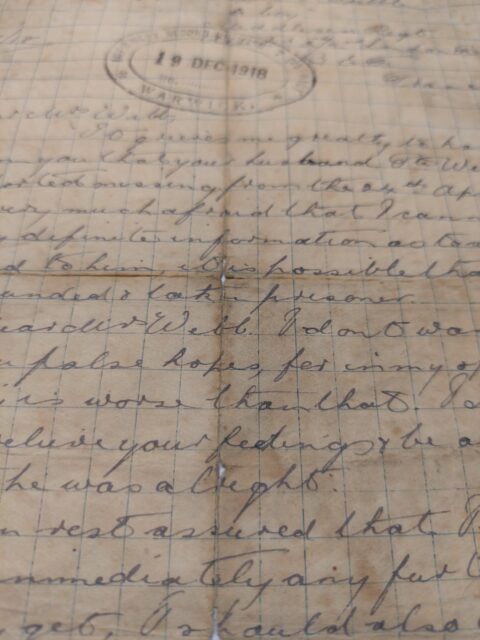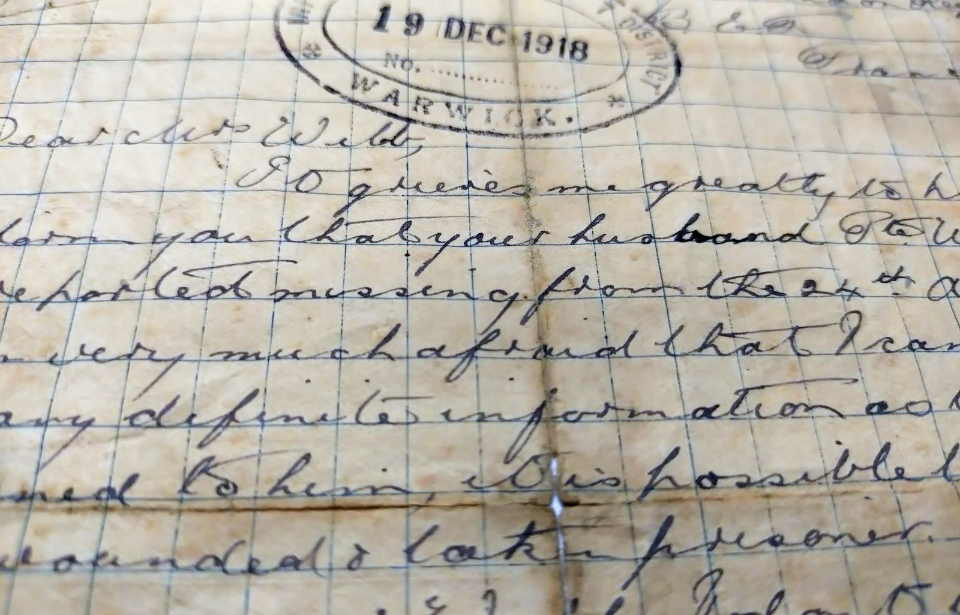A mystery letter from 1918 has been discovered at Tyne Cot Cemetery, near West Flanders, Belgium. It’s subsequently become a social media sensation, with efforts being made to try and track down its owner(s)!

Written to a member of the “S. Webb” family, it was found in the cemetery and handed in on or about July 11, 2024, by a tourist named Britt-Marie (no surname released) to the In Flanders Fields Museum in Ypres. It’s likely that the individual who dropped the correspondence may have been on a battlefield tour in the region earlier that month.
Composed by a Lt. C.E. Prebble to one of his soldier’s wives, it relayed that the man had gone missing (MIA) and he didn’t know if he was wounded or had been taken as a prisoner of war (POW). Written on May 9, 1918, it reads:
“It grieves me greatly to have to inform you that your husband Pte S Webb is reported missing from 24th April. I am very much afraid that I cannot give you any definite information as to what happened to him, it is possible that he was wounded and was taken prisoner.”

A search of the cemetery failed to come up with a name fitting the identification. However, we’ve since learned that the man was Sam Eustance Edward Webb, service number 12175. He was born on August 22, 1883, in Stowmarket, Suffolk, and was working as a bricklayer prior to his enlistment. He’d resided at 6 Martello Terrace, Hackney, London, with his wife, Lilian Stella Webb.
Prior to being transferred to the 2nd Battalion, Royal Berkshire Regiment in March 1918, Webb had served with the 6th Battalion. He is listed as killed in action (KIA) on April 24, 1918, at Hangard Wood, on the Somme at Hauts-de-France.
As for Lt. Prebble, it turns out he died at Halloy-lès-Pernois on August 8, 1918 – just a few months after the letter was written. He’d served with the 12th Battalion, Middlesex Regiment, to whom he’d been transferred after being commissioned a second lieutenant with the Royal Fusiliers (City of London Regiment).
Since the story came to light, it’s started to generate a great deal of social media traction, with the hopes of a potential Belgium-style Hercule Poirot looking to find the family member who probably dropped the note back in July.

More from us: ‘Blighty or Bust’ Tells the Story of a Young Soldier’s 2,000-Mile Escape to Freedom in World War II
Want War History Online‘s content sent directly to your inbox? Sign up for our newsletter here!
The letter’s owner(s) is asked to get in touch with the In Flanders Fields Museum at kenniscentrum@ieper.be.
